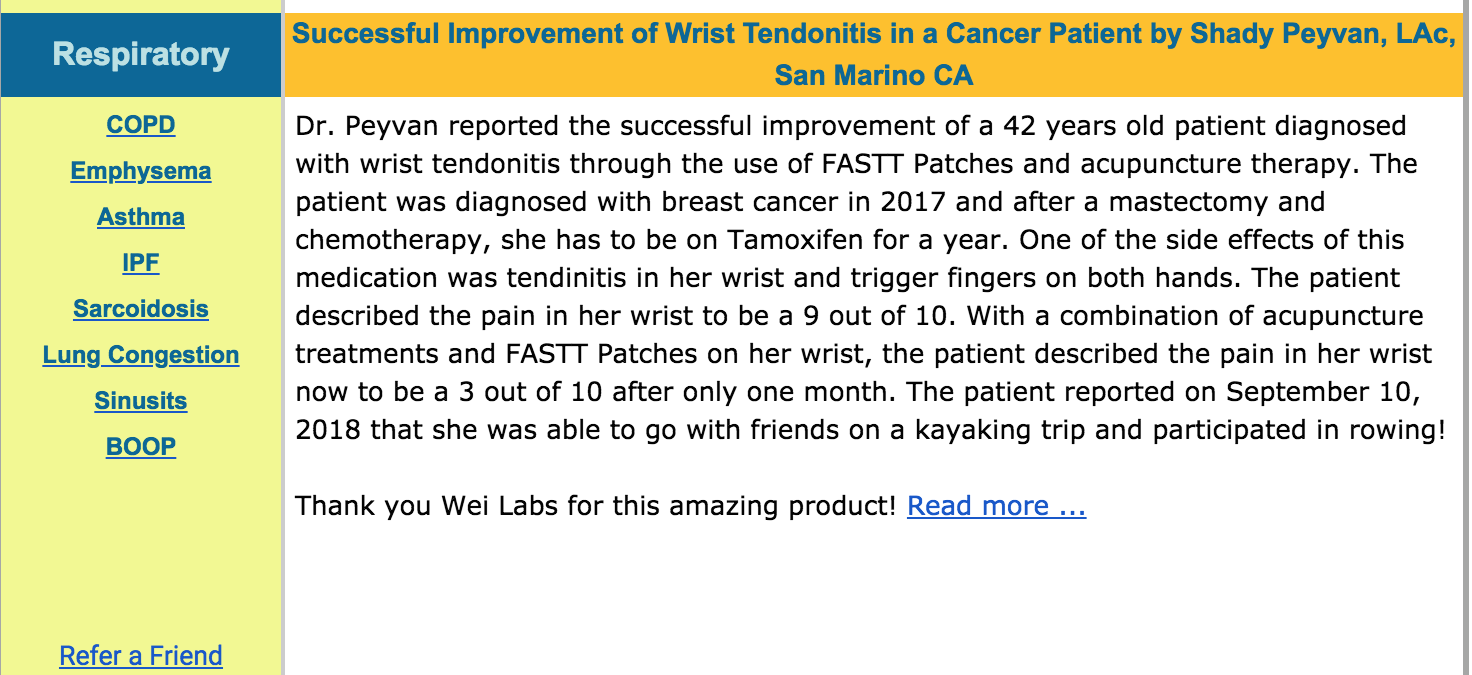-
Wei Products Newsletter

Among the many reasons I find this forum so beneficial is the sharing of information for those of us living with pulmonary fibrosis (PF). Occasionally members forward newsletters, links, articles or research advancements my way in the hopes that I will share it with others in our forums community. I am always happy to do this, as I believe the more information we have as patients, the better. I also am cautious about ensuring I/we (Bionews) don’t endorse any alternative therapies, as we’re not healthcare professionals and share information on this site merely for informational purposes.
I cannot speak personally to the benefits of WEI products and herbal medicine, but I know some members of our forums can. Therefore, I am happy to share a newsletter recently shared with me about these products, in case it helps others or they’re interested in learning more about it.
To sign up for the monthly Wei Products newsletter, follow THIS LINK and scroll down to the bottom of the page. Again, I am sharing this merely for informational purposes; I cannot and do not endorse this product.
Thank you to our forums member who shared this with me, and all of you who continue to use the PF News forums as a platform to help others obtain pertinent information about their disease.
Charlene.
Log in to reply.
